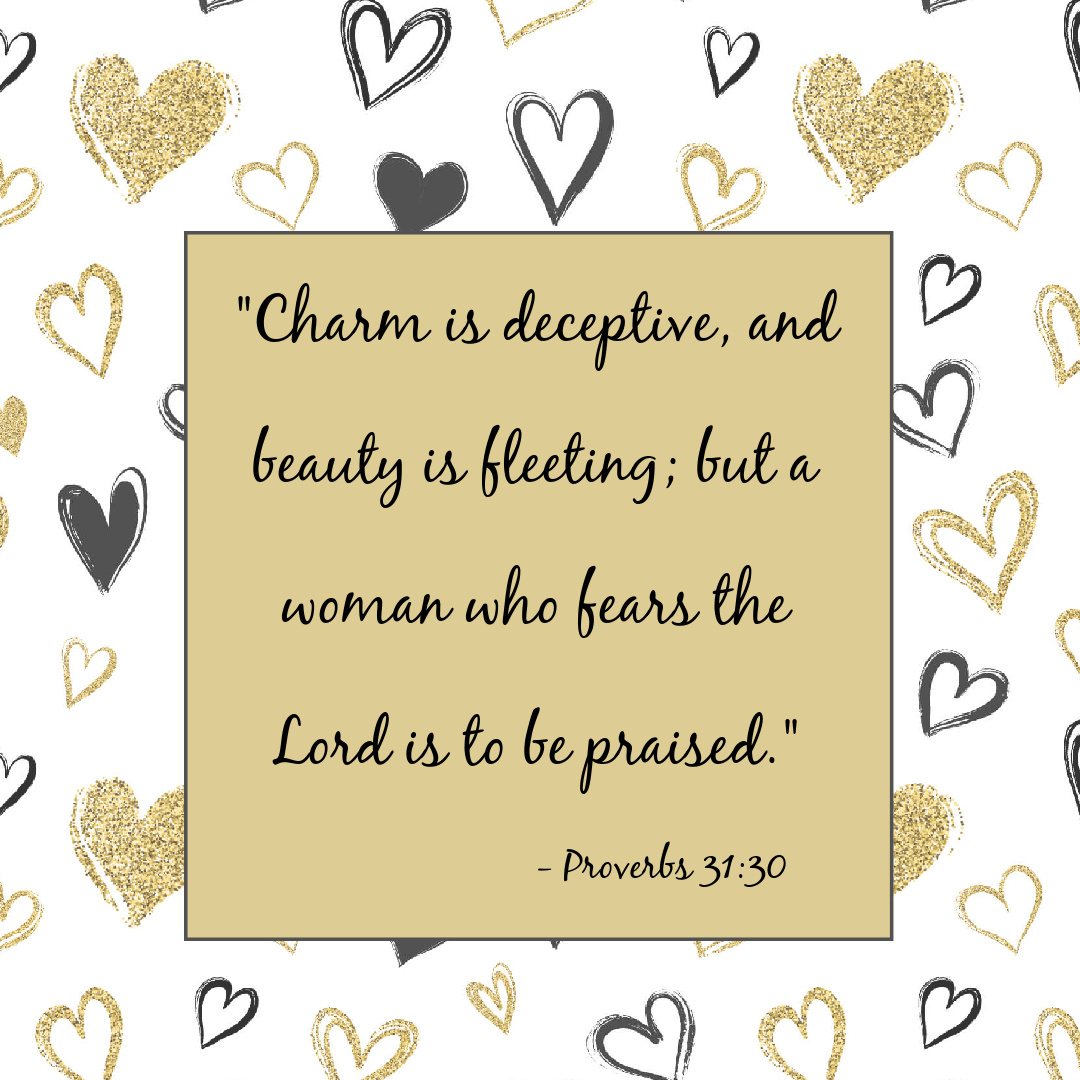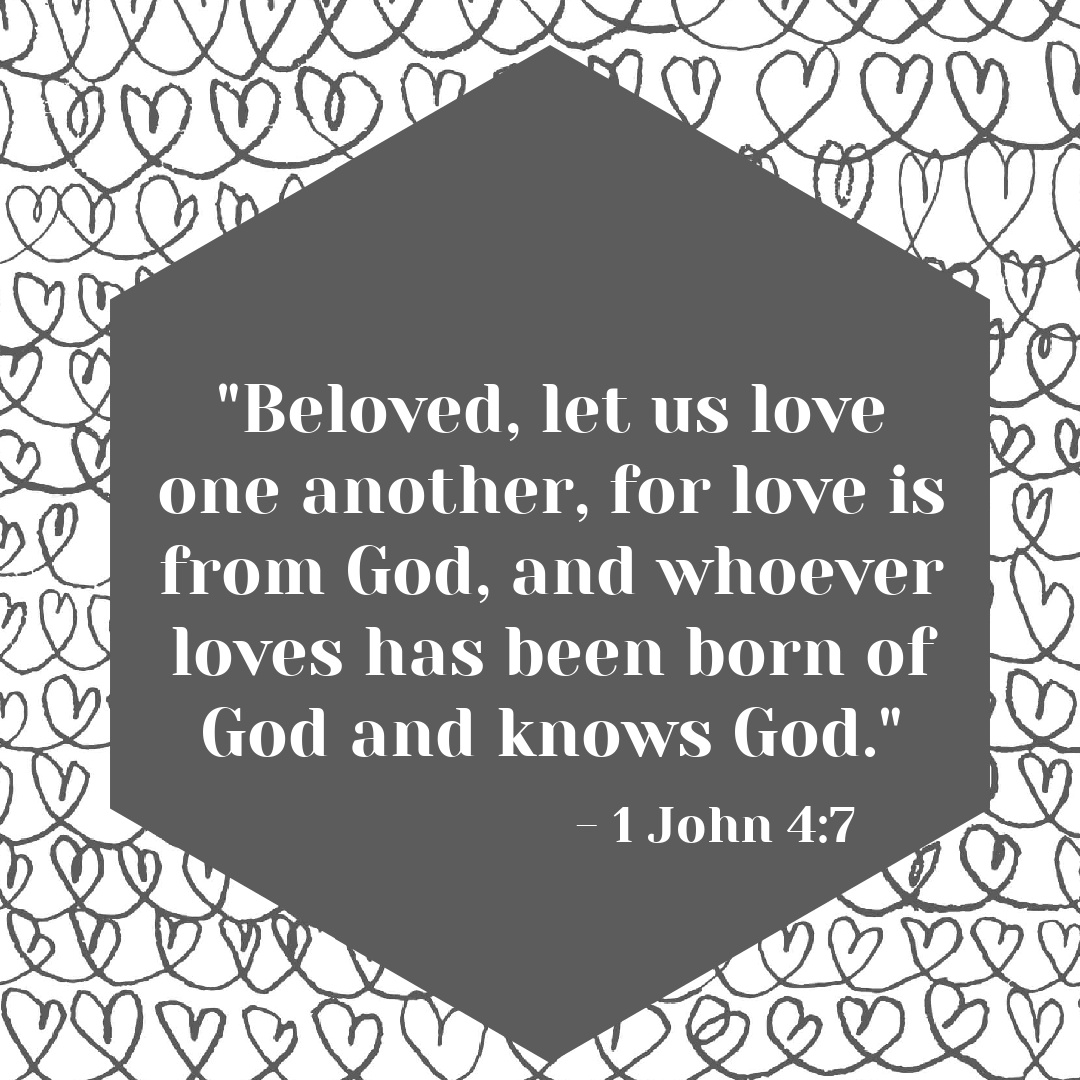‘Tis the season for heart-shaped chocolates, crimson roses, stolen kisses, and crushes revealed: no doubt about it, love is in the air! I’m not opposed to a great romance (not the flash-in-the-pan, hormone-driven types, but true, enduring stories of lifelong loyalty, companionship, and sacrificial love). But to me, Valentine’s Day is about more than romantic love: it’s a day to celebrate love in its many beautiful forms. And while I enjoy snapshots of love found in film, literature, song, and stories from friends, there’s no better source for love stories than the very Book that defines love itself: the Bible.
I’ve been doing several studies in the Old Testament recently and have come across quite a few lovely yet unconventional love stories that model genuine love of the non-romantic sort. The first is found in the story of Ruth, one of just two women to lend their names to books of the Bible. Ruth was a Moabite woman married to an Israelite who, along with his brother and parents, had left his home in Judah to escape famine. Shortly after their marriage, Ruth’s husband, brother-in-law, and father-in-law all die, leaving Ruth, her sister-in-law (Orpah), and her mother-in-law (Naomi) to fend for themselves in a culture that is not friendly to single women.

When Naomi decides to return to her homeland, Orpah makes the totally reasonable choice to remain with her people in Moab. But Ruth chooses loyalty to Naomi over allegiance to her family of origin. In one of the most beautiful passages of Scripture, Ruth pledges wholehearted fidelity to her mother-in-law, promising “Where you go I will go, and where you stay I will stay. Your people will be my people and your God my God. Where you die I will die, and there I will be buried. May the Lord deal with me, be it ever so severely, if even death separates you and me.” (Ruth 1:16-17)
Ruth remains true to her promise. The two women return to Bethlehem, where Ruth provides for herself and Naomi by gleaning leftover wheat and barley in the fields. Ruth is an outsider who likely faces great prejudice, but she soon comes under the care and provision of Boaz, a wealthy landowner who happens to be Naomi’s cousin. Through a strange set of circumstances that only God could have orchestrated, Ruth and Boaz eventually marry and Ruth gives birth to a son, Obed, who is the grandfather of King David and a distant grandfather of Jesus.
There are more than a few distinct love stories told in the book of Ruth, and most readers would likely see the romance between Ruth and Boaz as the book’s primary love story. But it is the connection between Ruth and Naomi that I find most inspiring. In-law relationships are notorious for being disagreeable, yet the dynamic between Ruth and her mother-in-law is one of commitment, sacrifice, and mutual respect. Ruth chose to stand by Naomi in her mother-in-law’s darkest moments, even though it would have been easier for Ruth to abandon Naomi to her emotions and return to her biological family; Ruth followed Naomi to a land she’d never seen where the culture, language, and customs would have been entirely foreign. In her adopted home, Ruth worshipped Naomi’s God and heeded Naomi’s advice in her work and ultimately her love life, even when doing so put her in precarious situations. And this love and faithfulness led to Ruth’s own very happy ending. Through Ruth’s story we see that love can sprout in the most unexpected places, including within a relationship dynamic (mother- and daughter-in-law) that is more often the center of harsh jokes than one of genuine affection.

Another Old Testament love story that has inspired me recently is a tale of friendship between Ruth’s great-grandson, David, and Jonathan, son of King Saul and intended heir to the throne. Jonathan was not on great terms with Saul (who at one point attempted to kill his own son for unintentionally disobeying his orders in battle), but that did not negate the fact that as the oldest son of a king, Jonathan would have anticipated stepping into the role of king himself. One would think that this would lead Jonathan to resent David, the youngest son of a shepherd who was NOT of royal birth but whom God had anointed as the king to replace Saul. However, Jonathan felt nothing but devotion to his friend, whose first interactions with David are described in 1 Samuel 18: “Jonathan became one in spirit with David, and he loved him as himself. . . . And Jonathan made a covenant with David because he loved him as himself.” Jonathan offers friendship, support, and even his own weapons and royal clothing to David, and eventually Jonathan risks his own life to prevent Saul from murdering his dear friend.
Following Jonathan’s death, David mourns his bosom friend: “I grieve for you, Jonathan my brother; you were very dear to me. Your love for me was wonderful, more wonderful than that of women.” (2 Samuel 1) Some secular commentators have interpreted these lines to mean that Jonathan and David were engaged in a homosexual relationship, but Scripture gives no indication to their relationship going beyond the deepest friendship. Once again we have a non-romantic love story of loyalty and selflessness that goes on to play a part in the story of redemption woven throughout the Old Testament: Jonathan’s friendship and sacrifice paved the way for David to inherit the throne that would one day be occupied by David’s descendent, Jesus! David is described as a man after God’s own heart, and I believe that David’s love for his dear friend and adopted brother, Jonathan, echoes the love Jesus feels for us, the adopted sons of daughters of God and brothers and sisters of Christ.

One final unconventional love story I’ve been pondering lately comes from chapter 31 of the book of Proverbs. You are likely familiar with the trope of the Proverbs 31 woman, the virtuous mother and wife of noble character who is described as industrious, strong, selfless, shrewd, resourceful, and compassionate. The qualities this woman possesses can seem frustratingly unattainable, yet as this aspirational Proverb draws to a close, we learn that all of this inspiring woman’s actions stem from one pivotal character trait: her reverence for God (Proverbs 31:30). She is a woman who seeks after God in all that she does, trusting Him with a fruitful heart that overflows into a life of wisdom and spiritual maturity.
In studying the entirety of her story, we see that the tireless work of the Proverbs 31 woman is not done out of obligation or a need to prove herself: she provides for her household, tends to needs within her community, burns the candle at both ends, and is a shrewd businesswoman and craftswoman because she loves and honors God. Love for Him is the motivating factor in all that she does, and this love spills out to members of her community and her household who praise her and call her blessed. The life of the Proverbs 31 woman is a love letter to her Creator, and her love is a prototype for contemporary women as well as for the modern Church, who are called to love effortlessly and serve tirelessly as WE love others because HE first loved us (1 John 4:19).

I could write volumes of the unconventional loves stories I’ve enjoyed reading in the Old Testament that have been pointing me to the ULTIMATE love story between God the Father and us, His children, whom He loved so much that He offered His own son as a sacrifice so that we may be reconciled to Him. THAT is the one unconventional love story that outshines them all and that is worth celebrating every day of the year—including February 14.
I do hope that your Valentine’s Day involves a touch of romance with your special someone. But whether you are coupled or lonely this Valentine’s Day, I pray that you know and experience the unconventional and incomparable love of your Lord and Savior, who has traversed every obstacle and obliterated every barrier to express His love for you. His love for you is far greater than the wildest romance. It is the epitome of unconventional, yet it is a love story for yesterday, today, and eternity, a love story that surpasses them all.